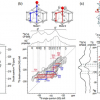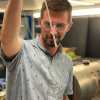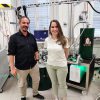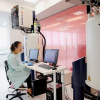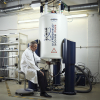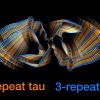Fake or low-quality medicines and food supplements are a continuing global problem in developing nations, and indeed the developed world is not immune. A researcher at Case Western Reserve University, Cleveland, Ohio, USA, is developing a low-cost, portable prototype designed to detect tainted medicines and food supplements. The technology can authenticate good medicines and supplements.
“There is a big problem with counterfeit and substandard medicines in poorer countries, particularly in Africa and Asia”, said Soumyajit Mandal, assistant professor in the Department of Electrical Engineering and Computer Science in the Case School of Engineering. “In the US, the biggest problem is with various dietary supplements.”
Mandal and his collaborators are developing a small detector using Nuclear Quadrupole Resonance (NQR) spectroscopy that has been preliminary tested in field trials. NQR spectroscopy is non-invasive and non-destructive and can analyse medicines and supplements in pill or powder form. Most chemical elements have nuclei that generate NQR signals; almost all medicines have API with NQR-active nuclei.
“The work builds on—and improves—a related project introduced in Europe a few years ago to create a portable, low-cost detector for medicines”, Mandal said. Details have been published in Transactions on Computational Biology and Bioinformatics in a paper titled “Authentication of Medicines using Nuclear Quadrupole Resonance Spectroscopy” (doi: 10.1109/TCBB.2015.2511763).
Research participants are Professor Swarup Bhunia at the University of Florida, in Gainesville, FL, USA, and Research Fellow Jamie Barras and Professor Kaspar Althoefer, both at King’s College London, UK.
“Current results are very promising and have advantages over competing methods”, Mandal said. “The required instrumentation is simple and low-cost, compared to other analytical techniques, such as optical spectroscopy.”
A medicine or dietary supplement might be incorrectly labelled for a variety of reasons—intentional fraud, poor manufacturing practices and degradation due to poor storage or post-expiration date. The key to detection is to know the proper active pharmaceutical ingredients (API) in a medicine or supplement, so technicians can determine whether a pill or powder is what it appears to be. The technology being developed in Mandal’s lab does not authenticate liquids.
Mandal’s research team proposes a “chemometric passport approach” for quality assurance. Data on packaged medicines will be derived from a spectroscopic analysis performed at the point of manufacture. The contents of the packet will later be authenticated by matching the results of another spectroscopic analysis using unique chemical identifiers from a reference spectrum.
Authentication information can be accessed either from a secure database stored in the cloud, or from information encoded directly within the product barcode. The absence of a match triggers a “contents don’t match the label” alarm on the testing device.
Mandal said that capability would be particularly useful at customs checkpoints and postal sorting offices when a barcode might not be visible. One day, he said, a person might be able to test his or her own medicines or supplements at home, which would have a direct effect on public health.
The research is showing that NQR isn’t sensitive to pill coatings and non-metallic packaging material, Mandal said.
“Part of what we are proposing is to take this product and do a systematic survey of how much misidentification there is out there,” Mandal said. “We need more data to understand the extent of the problem. We are recruiting people willing to try our prototype.”


